Sailendra Pattanayak
(Professor Jeetendra Nath Mohanty passed away on 7th March 2023 at his home in Philadelphia, Pennsylvania, U.S.A.)
We are living in a time in history when Philosophy and Poetry are being largely debarred from life. The pace at which science and technology have been bringing forth utilitarian changes to our lives we are left with no space for philosophy or poetry, as they are primarily of contemplative nature.
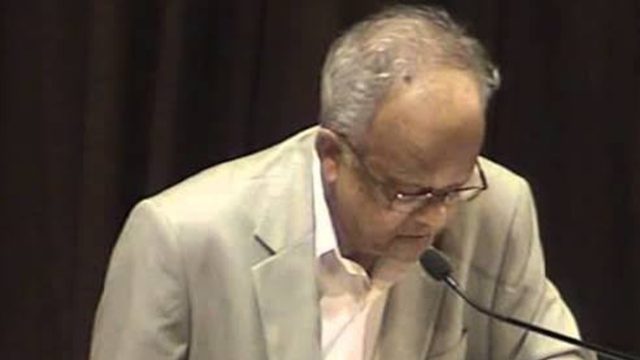
But life, although it has been perpetually engaged in adapting itself to technological innovations and utilitarian considerations, should it be doing away with the very basic constituents and identities of being human?
The identity of a human being or a person certainly is of a complex nature because although it is within the orders of nature like all other natural beings but being human it is also of a higher order. To follow the words of philosopher J. N. Mohanty, the human identity is “…..the identity of a subjectively lived body, the identity of mental life (limited by two unique events, birth and death), the identity of an ego pole and of a transcendental ego, the identity of historically developing self, a socially constructed self-hood as perceived by others, and the frail, always-at-risk, self-gathering of a person to come to terms with one’s past, with one’s projects and tradition.”
It is also the never-ceasing interaction between the external and the internal; between the person and the subject, as the person externally active and the subject internally oriented. “The person, is a concrete, corporal entity,” while “the subject is spirit understood as consciousness.’’
Accordingly, the identity of a person “…is not pre-given, but has to be continually re-established. A person has to gather herself up, unify her actions, beliefs, motives, character, and style together and not let herself disintegrate.”
We are reading, within the quotation marks, from Professor J.N.Mohanty’s book: ‘The Self and Its Other-Philosophical Essays’, OUP-2000.
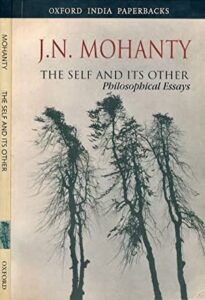
The Philosopher of the East and the West:
“Professor Mohanty’s readers and admirers can be said to fall into two broad camps: one group is prone to pronounce that J.N. Mohanty is a reputable transcendental philosopher and a leading authority on Edmund Husserl’s phenomenology; the other group will avouch that Dr. Jitendra Nath Mohanty is one of the leading Indian philosopher of our times, whose reputation goes back to the 1950s and 1960s when he injected much clarity and vigor into the discourse of philosophy in India.” – writes Dr. Prushottoma Bilimoria in the opening paragraph of his long introduction as the editor of J.N. Mohanty’s ‘Essays on Indian Philosophy’ (OUP-1993).
The Philosopher as a Man:
“The philosopher is still a concrete human being: however far-flung and cosmic his thinking may be… I am an Odia, I was born in Cuttack. My father was a village boy. My village roots are indelibly printed in my being. The features of that village — its soil, its trees, its ponds, its greenery, its temples, its cattle. My two mothers are—the village, and the one from whose womb I emerged into light… they let me be free to wonder around the world.”
“The village of Nilakanthapur…..At one end of Nilakanthapur …. there stands the house which I learnt to identify emotionally as ‘ours’. Though I was born in the city of Cuttack, and raised wherever my father was posted (the administration required that judges could serve at one station at most three years). Every vacation brought us back to this home.” Writes Dr. Mohanty in ‘Between Two Worlds- East and West- An Autobiography’(OUP-2002).
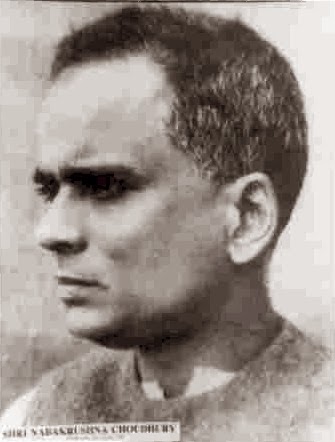
Individual and History—Coincidence and Destiny:
Jitendra Nath’s growing up and the crucial years of his life some-how or other coincided with crucial events of Twentieth Century. “It was in Cuttack in my senior year – 1942, it was– that something violent, but no less intoxicating, entered life, both at home and in school. My two uncles and their wives….Gopabandhu Choudhury and Rama Devi, Nabakrushna Choudhury and Malati Devi,” with whom he and his elder brother were staying, following Mahatma Gandhi’s Quit India movement courted arrest and went to jail. “Politics entered the school. Our elders, my father and school’s headmaster, silently conveyed their sympathy for Gandhian movement.”
But, Nabakrushna Choudhury, the younger of his two maternal uncles was the role model of his youth. He writes in his autobiography, Nabakrushna Choudhury “….sought with some success, to combine in his life, what I would have liked to combine: an intellectual skepticism, a revolutionary zeal for social justice, and an active political life administrating power. A founding member of Congress’ Socialist Party, along with Nehru, Jayaprakash Narayan, Achyut Patwardhan and Lohia, he later became Gandhian, gave up his long-time Chief Ministership of Orissa to join Vinoba Bhabe’s Bhoodan (land-gift) movement. But then, in the final years of his life, he turned to ultra-Marxist Naxalites. He was always thinking, trying to arrive at a satisfactory philosophy. …”
In matriculation keeping first in Odisha Jeetendra Nath joined Revenshaw College. “What excitement it was to bicycle from the house at one end of the town to college at the other end, a distance about three miles…. I studied Mathematics, Logic and Sanskrit and the two compulsory subjects English and Oriya.” Revenshaw College library brought to him world literature. “I read Anatole France, Andre Gide, Thomas Mann, Knut Humsun… also borrowed a copy of Kant’s Critique of Pure Reason, tried to read large parts of it and made my notes, but am afraid I did not understand much… It was at this time that my high school friend Aboni Ghose…. made me read Sri Aurobindo’s magnum opus, ‘Life Divine’…which impressed me a great deal by their profundity and large scope ..Soon after joining college, Aboni and I started a Sri Aurobindo Study Circle at the residence of a friend, Kangali Pati (later known as Prapatti).”
“At last, the two years of college in Cuttack were over. I took the ‘Intermediate Arts’ examinations and stood first in the University.”
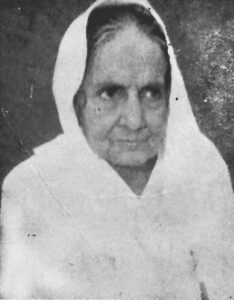
Graduation, Calcutta and Partition of India:
“For the first two years, my life in Calcutta was centered around that stately building on College Street which housed Presidency College.”
“Life in Eden Hindu Hostel was marked by many hours study, intense political and political-theoretical discussions among peers (most of whom were Marxists of some brand or the other), sipping coffee at the Coffee House at 15 College Square, and joining the proverbial ‘adda’ of the Bengali youth.”
“Bengal was then ruled by …the Muslim League. Jinnah’s call for the partition of India, and creation of Pakistan was still regarded by us, certainly by me….as a flimsy and not-to-be-taken-seriously idea.”
Maulana Azad was the President of the Congress at that time, so all the first line leaders of Congress had come to his residence in Calcutta to discuss Sir Clifford Cripps’s proposal, which indeed was the last chance to evade the partition; but unfortunately, the Congress had rejected it.
Jitendra Nath was greatly excited to see the great leaders and also to listen to Pandit Neheru who later came to his college to speak.
“But all the excitement—largely romantic, patriotic and suffused with faith in humanity—came crashing down when, on 16 August 1946, the great; actually, the meanest, ‘communal’ killings began in Calcutta.”
“Eden Hindu Hostel, where we lived, was in the middle; on one side was a large Muslim slum, Kalabagan, and on the other side, the Hindu, largely Marwari, locality…..We had to accumulate stones on the roof (to be hurled at the advancing crowd), boiling waters to be poured over the attackers, and the walls were covered with live electric wires connected to Baker’s Laboratory…..
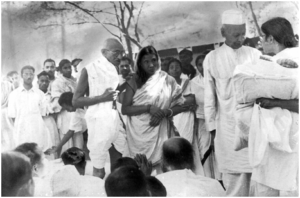
“Food was scarce until the Marwari Relief Society brought some in. With the stench from decomposing corpses, one could hardly eat. After two weeks of storm and stress, blood and stinking flesh, when the riot subsided, and roads opened, some students from Orissa hired a horse drawn carriage, slammed the doors from inside, and left for Howrah station. We squeezed ourselves in a Cuttack bound train, which was already overflowing with people fleeing the city……”
“When, several months later, I returned to Calcutta, Gandhi was in the city…. preparing for his visit to East Bengal. My maternal aunt, Malati Choudhury, accompanied him. Everyone in his entourage risked his or her life….”
“The final B.A. examination was postponed owing to communal disturbances. Eventually, when we passed the examination, the country was independent. That made me a member of the first group college graduates in independent India. I stood first in First Class with Honors in Philosophy….”
to be continued…
(The Author is a Poet, Spiritualist and Development Professional. Opinions are personal)






















